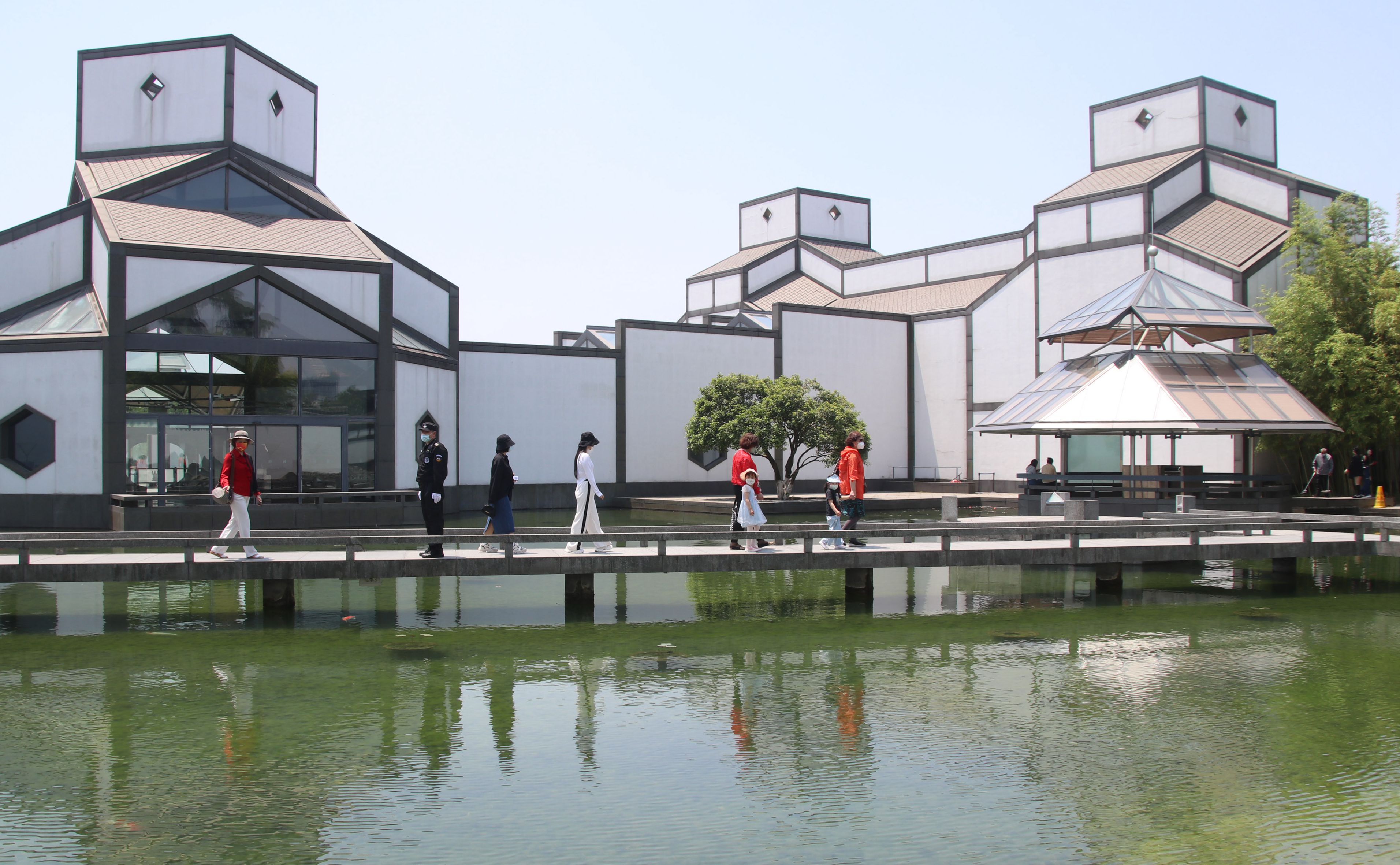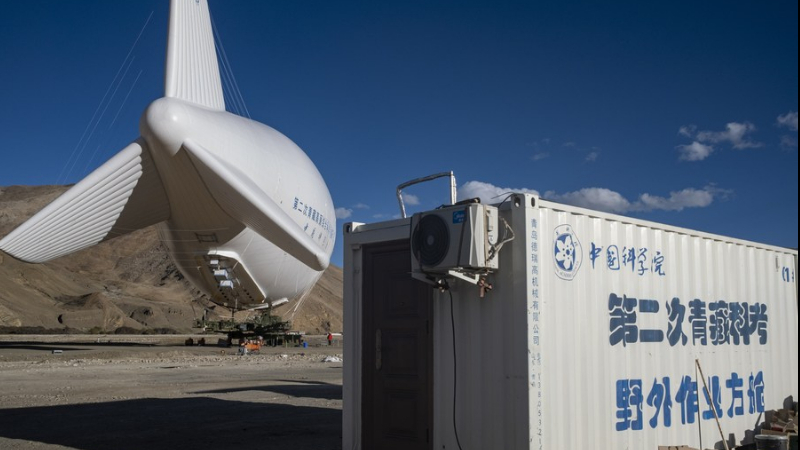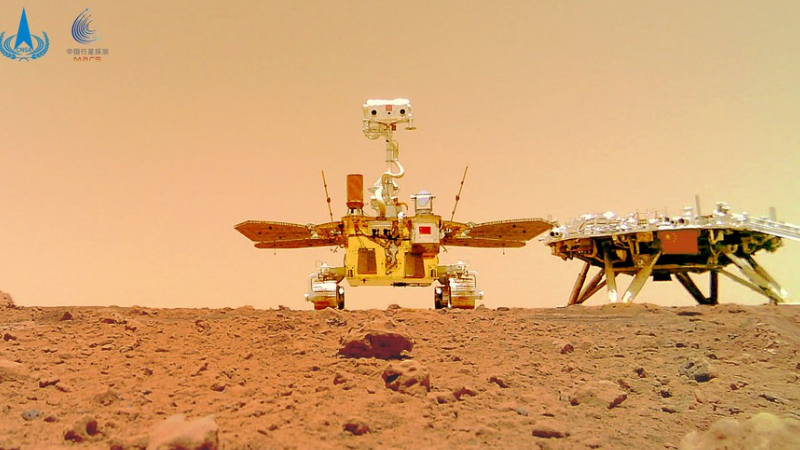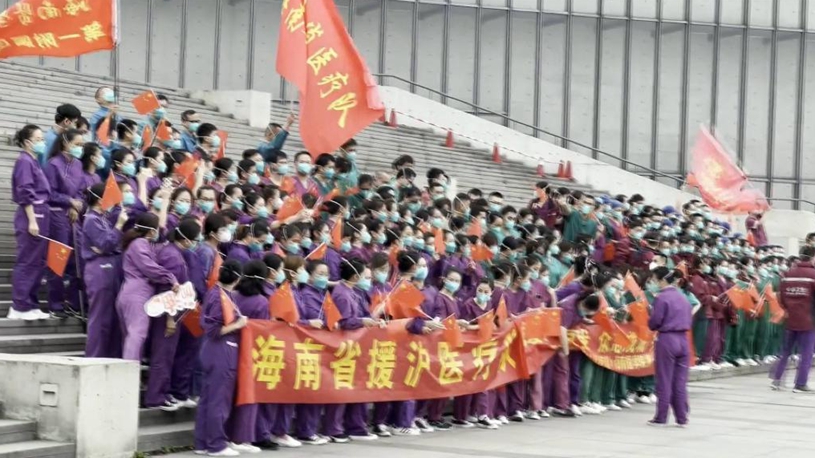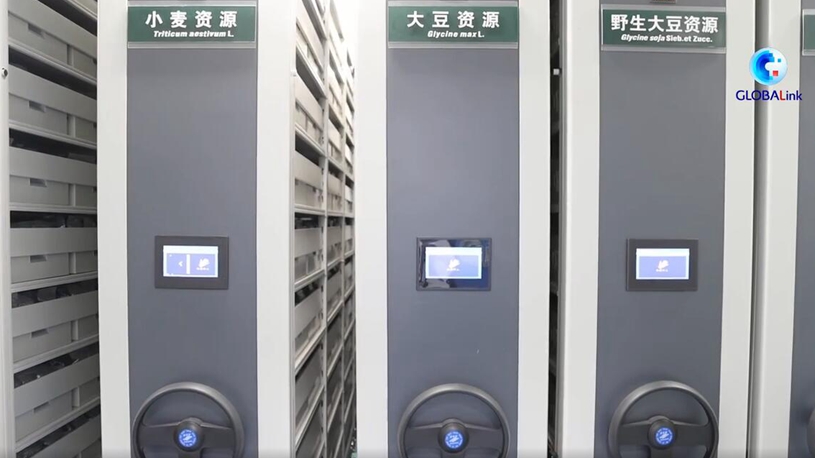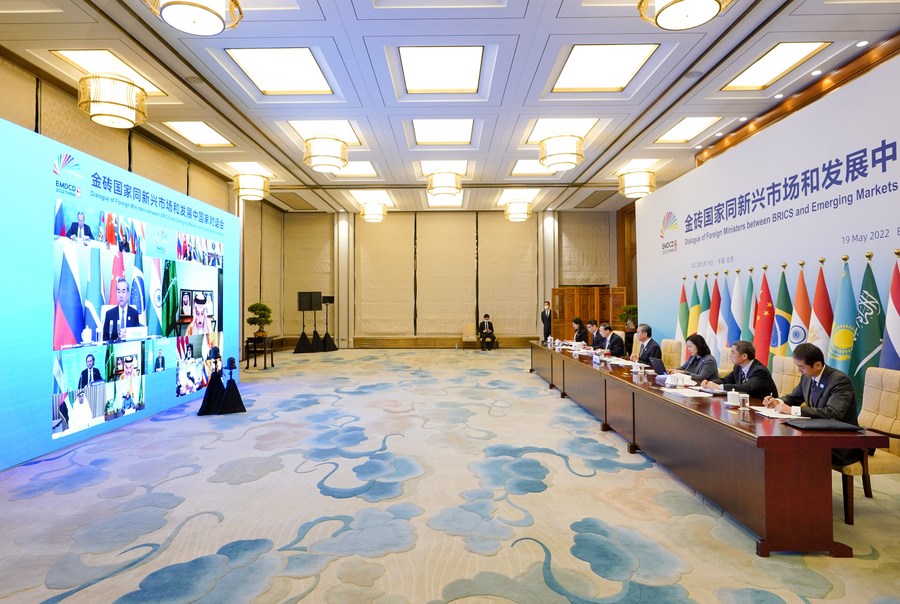
Chinese State Councilor and Foreign Minister Wang Yi chairs a meeting of Dialogue of Foreign Ministers between BRICS and Emerging Markets and Developing Countries via video link in Beijing, capital of China, May 19, 2022. (Xinhua/Gao Jie)
BEIJING, May 20 (Xinhua) -- Chinese State Councilor and Foreign Minister Wang Yi on Thursday chaired via video link a foreign ministers dialogue between BRICS and emerging markets and developing countries.
Noting that it is the first "BRICS Plus" dialogue at the foreign minister level, Wang said the dialogue is of significant importance in further expanding cooperation between BRICS countries and other emerging markets and developing countries.
Wang stressed upholding true multilateralism, the key of which is to adhere to extensive consultation, joint contribution and shared benefits, to advocate openness and inclusiveness, and to oppose closure and exclusion.
He called for firmly upholding the international system with the United Nations as the core, and opposing the practice of forming "small cliques" and coercing other countries to choose sides.
Wang noted the necessity to promote the global governance system to better reflect the legitimate concerns and reasonable demands of most countries, especially developing countries.
Wang called for efforts to promote the international community to prioritize development in global governance, adding that China is willing to increase investment in development cooperation, work with other countries to push forward the implementation of the Global Development Initiative, and let development achievements benefit more developing countries.
Noting the impact of unilateral sanctions and technological barriers to emerging markets and developing countries, Wang said efforts should be made to let developing countries to better participate in the international division of labor and cooperation and share the dividends of globalization.
It is also necessary to strengthen global health governance to ensure fair access to vaccines in developing countries, and bridge the immunization gap, Wang added.
Developing countries have become an important engine for world economic growth and a new force driving the evolution of the international landscape, Wang said, calling for strengthening South-South cooperation in a wider scope and at a deeper level, and promoting the development of a fair and equitable global governance system.
The "BRICS Plus" cooperation model is born for cooperation and thrives for development, and welcomes the participation of more countries, Wang added.
Speaking highly of the "BRICS Plus" cooperation, foreign participants of the dialogue expressed the willingness to enhance strategic communication and coordination between BRICS countries and emerging markets and promote the development of global governance system that is more fair and equitable, and more inclusive and democratic. They also agreed to strengthen South-South cooperation and build a global partnership for development.
Foreign participants attending the dialogue come from BRICS countries including Brazil, Russia, India and South Africa, as well as from guest countries including Kazakhstan, Saudi Arabia, Argentina, Egypt, Indonesia, Nigeria, Senegal, United Arab Emirates and Thailand.
Wang said the participants reached consensus to support and promote multilateralism, defend the purposes and principles of the UN Charter, and increase the representation and voice of emerging markets and developing countries in global governance.
The participants also agreed to support cooperation to defeat the pandemic and continue to strengthen cooperation in vaccine and drug research and development, to help developing countries improve their anti-epidemic capabilities.
The participants agreed that emerging markets and developing countries have similar experiences, similar ideas, and intertwined interests, and they should strengthen self-improvement through unity, forge extensive partnerships, and promote world peace, stability, development and prosperity, according to Wang. ■


